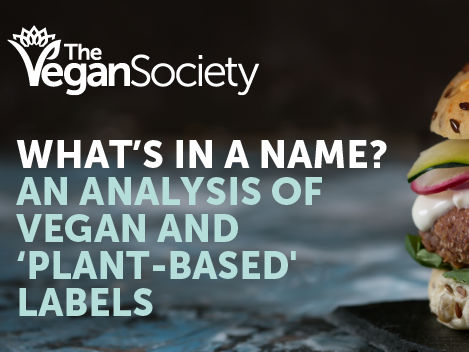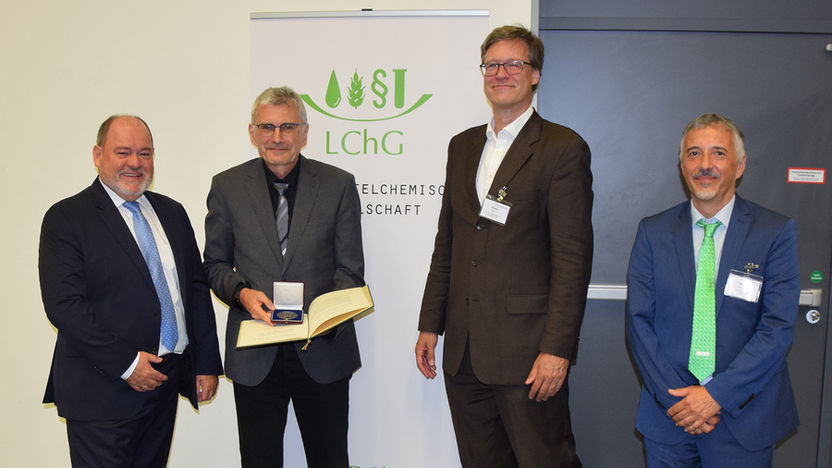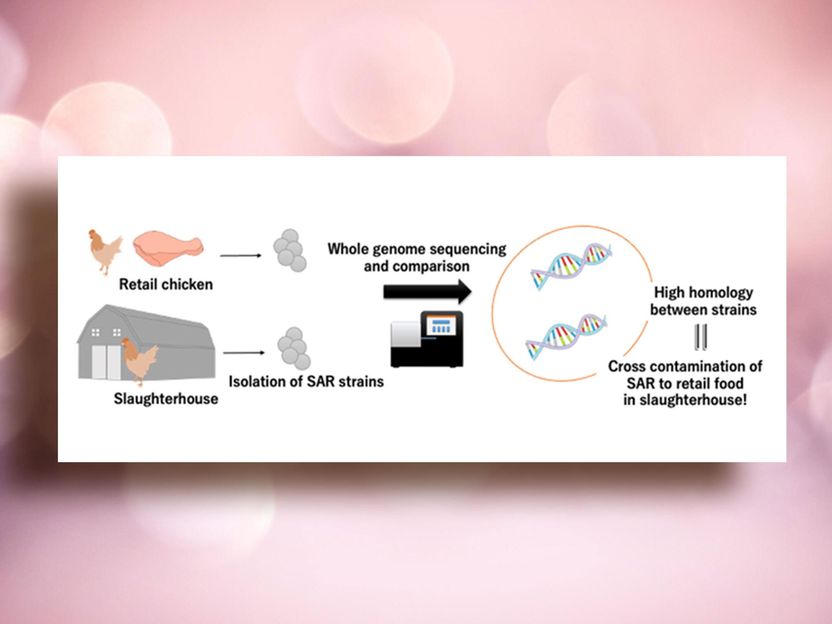New Vegan Society and University of Manchester research explores ambiguity of the term 'plant-based'
This World vegan Month, The Vegan Society has released a report entitled What’s in a name? An analysis of vegan and ‘plant-based' labels; the first in a series exploring whether the term 'plant-based' is a help or hindrance to the vegan movement.

he UK's leading vegan charity has joined forces with The University of Manchester for a research project analysing the use of 'vegan' and 'plant-based' labels, and how their usage might impact the vegan cause.
There is a lack of data on UK markets regarding consumer attitudes towards ‘plant-based’ and 'vegan' terminology. However, a previous Vegan Society survey undertaken in 2020, whose key findings included a near 50/50 split between people preferring the term 'vegan' (53% of 1,000 respondents) and those preferring 'plant-based', sought to fill this gap. And this year, the society has expanded on this research to provide further insight into the issue.
The first report explores the origins of the phrase ‘plant-based’. While there is no universally accepted definition, it is thought the term was coined by biochemist and author of The China Study Dr T. Colin Campbell in the early 1980s. Dr Campbell felt the need to come up with an "objective, scientifically valid" phrase to describe a diet with no animal products, but one which avoided the controversy, or "charged atmosphere", of the term 'vegetarian'.
There is no consensus between reputable dictionary groups as to the definition of ‘plant-based’. Merriam-Webster, Cambridge English Dictionary and Oxford English Dictionary each has varying, vague definitions, using indefinite language such as “mainly”, or “primarily” made from plants, leaving the phrase open to interpretation by citizens and food producers alike.
The context of the phrase also varies widely among academia and other publicity material; in some cases it is used interchangeably with ‘vegan’ while in others it describes vegetarian diets. It has even been known to refer to flexitarian diets. There is concern that this ambiguity could result in confusion among consumers and potentially be misleading. As the report states: "Vegan is an unambiguous term which provides consumers with a certain standard of clarity which ‘plant-based’ simply cannot."
The phrase ‘plant-based’ currently has no legal definition and partners of The Vegan Society around the world say it also does not translate well in many other languages. A more positive view of the term is that it is more appealing and considered inclusive of the wider market. The report further speculates: “The phrase plant-based has its origins in efforts to depoliticize veganism/vegetarianism and avoid controversy within the scientific community.”
Conversely, others are concerned it makes the term vegan seem more exclusive and unyielding to those considering a more gradual journey towards an animal free diet.
Research Assistant for The Vegan Society, Alexander Huntley, said: "We're pleased to be collaborating with The University of Manchester on this report, which aims to shed light on the seemingly interchangeable use of the labels 'plant-based' and 'vegan', and determine whether it is a help or hindrance to the movement.
"We're concerned it may cause confusion among consumers and potentially mislead vegans so we're very keen to explore and resolve this issue, resulting in a positive impact for both individuals and the vegan cause as a whole."
Dr Jack Coffin, Senior Lecturer of Marketing at the University of Manchester, added: "Contemporary diets in the Global North centre around the consumption of animal products, resulting in considerable environmental impacts for the world, health issues for consumers, and much suffering for animals.
"Many consumers are now trying to reduce or remove animal products from their diet, but there is considerable confusion around labelling. Through this research we hope to provide more clarity for consumers, brand managers, and policy-makers around this important issue."
Most read news
Other news from the department business & finance

Get the food & beverage industry in your inbox
By submitting this form you agree that LUMITOS AG will send you the newsletter(s) selected above by email. Your data will not be passed on to third parties. Your data will be stored and processed in accordance with our data protection regulations. LUMITOS may contact you by email for the purpose of advertising or market and opinion surveys. You can revoke your consent at any time without giving reasons to LUMITOS AG, Ernst-Augustin-Str. 2, 12489 Berlin, Germany or by e-mail at revoke@lumitos.com with effect for the future. In addition, each email contains a link to unsubscribe from the corresponding newsletter.
Most read news
More news from our other portals
Last viewed contents

Upskilling, career growth and job security among top expectations of young workers, new survey finds

Prof. Thomas Henle from Dresden University of Technology elected to the "Hall of Fame" of food chemistry





























































